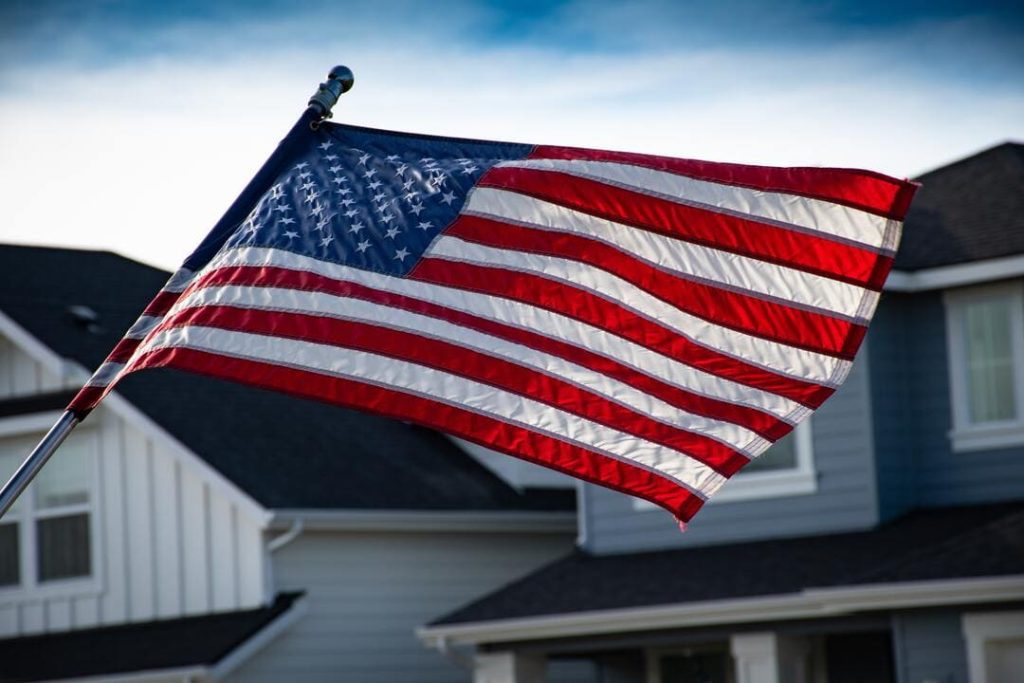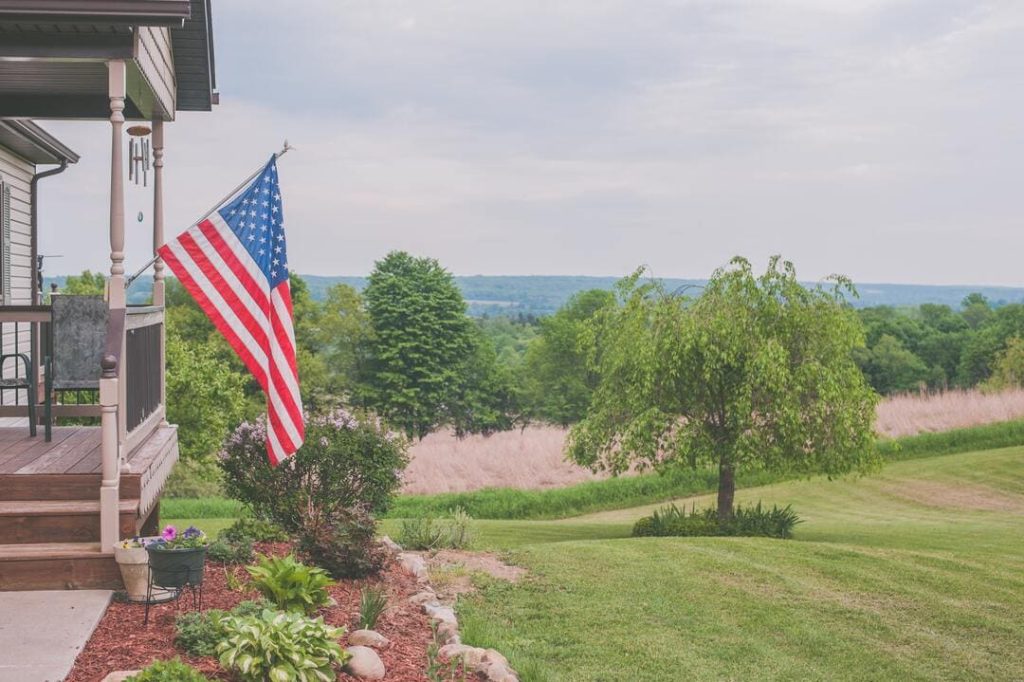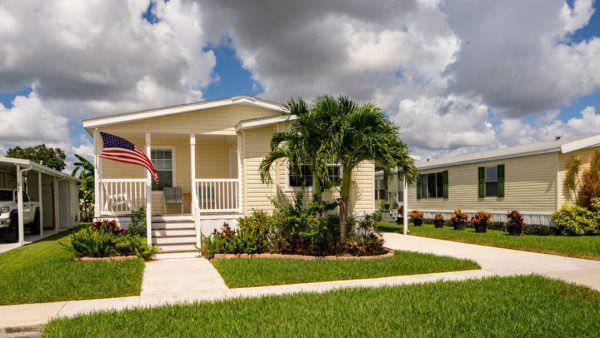Looking for Expert-Level VA Claim Answers?📱Call Us Now! 737-295-2226
As a veteran, service member, or surviving spouse, you have a special benefit that has helped over 24 million veterans just like you achieve the dream of home ownership: veterans home loans. Whether you’re a veteran looking to purchase your first home or a surviving spouse seeking to take advantage of your eligibility, we’ve got you covered.
From the eligibility requirements to the application process, we’re going to cover everything you need to know to make the most of your VA home loan benefits. Let’s dive into the seven most frequently asked questions about veterans home loans!
- 7 Frequently Asked Questions About Veterans Home Loans
- 1. What is a VA Home Loan?
- 2. Why should I choose a VA loan?
- 3. How should I plan for a VA Mortgage?
- 4. Am I eligible for veterans home loans?
- 5. What are the veterans home loans credit requirements?
- 6. How can I get a VA home loan with bad credit?
- 7. How can I apply for a VA housing loan?
- You Served, You Deserve a VA Home Loan

7 Frequently Asked Questions About Veterans Home Loans
Are you a veteran with bad credit looking to take advantage of the benefits of veterans home loans? The VA home loan program is an excellent way for veterans to achieve the dream of homeownership, but a low credit score can make the process more difficult. However, don’t let a less-than-perfect credit score discourage you from applying for veterans home loans. You can take many steps to increase your chances of being approved for a VA home loan.
At VA Claims Insider, we understand the unique challenges that veterans with bad credit face when applying for veterans home loans. That’s why we’ve compiled a list of 7 tips to help you navigate the process and increase your chances of being approved for a VA home loan.
1. What is a VA Home Loan?
A VA home loan, also known as a Veterans Affairs mortgage, is a type of home loan guaranteed by the VA. This type of loan is designed to assist veterans, active-duty service members, and certain surviving spouses in purchasing a home.
With a VA loan, eligible borrowers can purchase a home with no down payment and no private mortgage insurance (PMI). The VA doesn’t lend money for the loan but does back loans made by private lenders to veterans and service members. Examples of private lenders include banks and mortgage companies.
2. Why should I choose a VA loan?
VA home loans are an excellent option for veterans looking to purchase a home, but navigating the process can be confusing. However, it’s often worth it! Benefits of VA loans include:
No Down Payment Requirement
One of the main advantages of VA home loans is that they do not require a down payment. This can be a massive benefit for veterans who may not have a lot of savings or may be struggling to come up with the money for a down payment.
Lower Credit Requirements
Veterans home loans also have more lenient credit requirements than conventional loans, making them a great option for veterans with bad credit.
Excellent Interest Rates
Another benefit of a VA loan is that it offers competitive interest rates. Since these loans are backed by the government, lenders can provide veterans with lower interest rates. This can save you thousands of dollars over the life of your loan.
As of February 2023, VA loan mortgage rates are about
Here’s an example: if you’re purchasing a $300,000 home with a 30-year mortgage, a .5% increase in your interest rate could cost you an additional $34,000 over the life of the loan!
Refinance Options
Veterans can also take advantage of the VA’s Interest Rate Reduction Refinance Loan (IRRRL) program, which allows you to refinance your existing VA home loan to lower your interest rate and monthly payment.
You Can Use your VA Mortgage Benefit Multiple Times
One of the great benefits of a VA mortgage is that you can use it multiple times. If you’ve already used your VA home loan benefit and have since paid off the mortgage, you can still use it again to buy another home.
You can also use veterans home loans to refinance an existing mortgage, which can help you lower your monthly payments and save money over time.
No Private Mortgage Insurance
Private Mortgage Insurance, or PMI, is an extra cost that some borrowers have to pay if they don’t have a big enough down payment or if their credit score needs to be higher. This can save you thousands of dollars over the life of your loan. You don’t have to worry about this extra cost with a VA loan.
So whether you’re a first-time homebuyer or an experienced homeowner, a VA home loan can help you achieve your dreams of homeownership.

3. How should I plan for a VA Mortgage?
Planning for your first home purchase can be daunting, especially for veterans looking to use a VA loan. If you’re planning on buying a home anytime soon, budgeting for your home is a great idea.
How much house can you afford?
One of the most important things to consider when considering a home is how much house you can afford.
Before even looking at homes, getting pre-approved for a VA home loan is a good idea. This will give you an idea of the maximum loan amount you qualify for, which can help you determine your budget for a home.
There is no max VA loan amount from the VA, however, your lender will only allow you to borrow a specific amount based on your own situation. However, even though a lender pre-approves you for a high amount, you can still buy a house at a different price point. Make sure you’re comfortable with the monthly payment, including your mortgage, insurance, and property taxes.
Planning and Interest Rates
One crucial factor to consider is the interest rate on your loan, as it can significantly impact your monthly mortgage payment. While fixed-rate mortgages offer stability and predictability, it’s important to remember that interest rates fluctuate over time.
Consider this when budgeting for your home purchase and determining how much you can afford to spend.
Budget for Additional Expenses
Additionally, consider other costs associated with buying a home, such as closing costs, property taxes, and homeowner’s insurance. You may also be required to pay a VA funding fee (more on this below).
Setting aside some money for unexpected expenses or repairs that may come up after you move in is also a good idea. By taking the time to plan and budget now, you’ll make the home-buying process more manageable.
4. Am I eligible for veterans home loans?
Before applying for a VA mortgage, it’s important to understand the eligibility requirements and critical factors that may affect your loan.
Service Requirements
To be eligible for veterans home loans, you must have served in the military on Active Duty, in the Reserves, or in the National Guard. Your discharge must be other than dishonorable.
For Active Duty service members currently serving, you’re eligible if you’ve served for at least 90 continuous days.
Generally, if you served for 24 months straight, you’re eligible. Here are the specific eligibility requirements for veterans:
- Gulf War Veterans (Between August 2, 1990, and the present)
- At least 24 continuous months of active-duty service, or
- The full period (at least 90 days) for which you were called or ordered to active Duty, or
- At least 90 days if you were discharged for a hardship, or a reduction in force, or
- Less than 90 days if you were discharged for a service-connected disability
- Between September 8, 1980, and August 1, 1990
- At least 24 continuous months of active-duty service, or
- The full period (at least 181 days) for which you were called to active Duty, or
- At least 181 days if you were discharged for a hardship, or a reduction in force, or
- Less than 181 days if you were discharged for a service-connected disability
- Post-Vietnam Era Veterans (Between May 8, 1975, and September 7, 1980)
- 181 continuous days of active-duty service, or
- Less than 181 days if you were discharged for a service-connected disability
- Vietnam Veterans (Between November 1, 1955, and May 7, 1975)
- At least 90 total days of active-duty service, or
- Less than 90 days if you were discharged for a service-connected disability
- Post-Korean War Veterans (Between February 1, 1955, and August 4, 1964)
- At least 181 total days of active-duty service, or
- Less than 181 days if you were discharged for a service-connected disability
- Korean War Veterans (Between June 27, 1950, and January 31, 1955)
- At least 90 total days of active-duty service, or
- Less than 90 days if you were discharged for a service-connected disability
- Post-WWII Veterans (Between July 26, 1947, and June 26, 1950)
- At least 181 continuous days of active-duty service, or
- Less than 181 days if you were discharged for a service-connected disability
- WWII Veterans (Between September 16, 1940, and July 25, 1947)
- At least 90 total days of active-duty service, or
- Less than 90 days if you were discharged for a service-connected disability
For Reservists and National Guard members who were serving after August 2, 1990, if you served at least 90 days of active Duty, you’re eligible.
Surviving spouses may also be eligible for a VA-backed home loan. You must meet one of these criteria:
- The Veteran is missing in action
- The Veteran is a prisoner of war (POW)
- The Veteran died while in service or from a service-connected disability and you didn’t remarry
- The Veteran died while in service or from a service-connected disability and you didn’t remarry before you were 57 years old or before December 16, 2003
- The Veteran had been totally disabled and then died, but their disability may not have been the cause of death (in certain situations)
A key differentiator here is that even if you’re eligible for a VA mortgage, a lender still must approve you based on your situation.
VA Mortgage Inspection Requirements
The VA has Minimum Property Requirements (MPRs) for any veteran or service member looking to use a VA home loan when buying a property. Keep these in mind when you’re house shopping.
Here are some things that a VA home loan inspector will check for:
- The house is in good shape and livable
- The house is safe and clean to live in
- The foundation is strong enough to hold up the house
- The heating, cooling, plumbing, and electricity all work
- The roof and walls protect the house from bad weather
- There are no bugs or animals that can harm the wood in the house
- There are no dangerous materials like lead paint
- Water doesn’t flood into the house
If your inspector finds any problems, you won’t be able to buy the house.

5. What are the veterans home loans credit requirements?
The VA doesn’t have a minimum credit score requirement to qualify for a VA home loan. However, different lenders have different minimum scores that will approve you for a VA mortgage.
Most VA loan lenders want a FICO score of at least 620, but some will go down even further. We’ve seen lenders go down to 550.
Additionally, veterans with recent bankruptcy or foreclosure typically have to wait a certain period before being eligible for a VA loan (usually about two years).
6. How can I get a VA home loan with bad credit?
If you’re a veteran and you have bad credit, don’t worry. You can still apply for veterans home loans! VA loans for bad credit are possible.
Here are some tips to help you get VA home loans for bad credit :
- Check your credit report – Before applying for a loan, check your credit report for mistakes. Tell the credit bureau if you find any errors to help your credit score.
- Work on your credit now – Even if you have bad credit, there are ways to improve it. This can include paying off outstanding debts, paying your bills on time, and limiting new credit applications. The better your credit, the more likely you’ll qualify for veterans home loans and get a better interest rate.
- Save money for a down payment – Even though you don’t need a down payment for a VA mortgage, it can still be helpful. If you save money for a down payment, you might get a lower interest rate and be more attractive to lenders.
- Get pre-approved – Before you start looking for a home, it’s a good idea to get pre-approved for a veterans home loan. This will show you how much money you can borrow and make buying a home easier.
- Use a VA-approved lender – Not all lenders know how to handle veterans home loans, so make sure to find one that is VA-approved. These lenders know the rules and guidelines for VA loans.
- Be honest and transparent – When you apply for a loan, be honest about your credit history and financial situation. Lenders will appreciate your honesty and may be more willing to work with you.
- Find a cosigner – If you’re having trouble getting a veterans home loan on your own, ask a family member or friend with good credit to co-sign the loan with you.

7. How can I apply for a VA housing loan?
The first step in applying for a VA housing loan is to apply for a Certificate of Eligibility (COE) through the VA. A COE verifies that you are eligible for a VA loan and is required by the bank to process your application.
You can get a COE by applying through eBenefits or asking the bank you’re working with to help you get one.
Once you have your COE, you’re ready to apply for a VA mortgage. You’ll need to work with a bank that’s approved by the VA to do this. The VA works with lots of banks, so you should be able to find one that you like.
What information will the lender need from me?
The bank will ask you for some information about yourself and your finances, like:
- How much money you make
- How much you want to spend on a home
- Your credit score
- Your employment history
Once you’ve applied, the bank will look at your application and decide if they want to give you a loan. They’ll tell you how much money you can borrow if they do.
The VA sets specific guidelines that lenders must follow when approving VA loans. Still, ultimately, it’s up to the lender to decide whether or not to approve your loan.
The VA Home Loan Funding Fee
If approved, you’ll have to pay a “funding fee” when you close on the loan. This is a fee that the VA charges to help cover the cost of the loan. In 2023, VA funding fees range from .5% to 3.6% of the total cost of your loan, but you can look up your rate on the VA’s website. The rate varies on how much (if any) of a downpayment you’re including.
This fee also applies to refinancing your mortgage with a VA loan.
If you’re a veteran with a service-connected VA disability rating of 10% or higher, you’re exempt from paying a VA funding fee as a closing cost of your VA mortgage. This can save you tens of thousands of dollars!
If you have a disability caused by your military service, don’t wait. File your VA disability claim and get the care and compensation you deserve.
Other VA funding fee exemptions include:
- If you’re a service member preparing to separate and are approved for a VA rating of 10% or higher
- Purple heart recipients
- Surviving spouses eligible for veterans home loans
The VA Buyer’s Guide is another helpful resource for veterans planning to purchase or refinance a home loan.
You Served, You Deserve a VA Home Loan
Overall, applying for veterans home loans is pretty straightforward, and the VA (and your lender) are there to help you every step of the way. You can also get pre-approval for a VA mortgage, which will give you an idea of how much you can borrow and will make the home-buying process smoother.

Trisha Penrod
Trisha Penrod is a former active-duty Air Force officer. As an Intelligence Officer, she led teams of analysts to apply advanced analytic skills to identify, assess, and report potential threats to U.S. forces.
Trisha attended the U.S. Air Force Academy and holds an MBA from Webster University. After receiving an honorable discharge in 2018, Trisha worked as a growth marketer and utilizes her analytic skills to help others accomplish their business goals.



